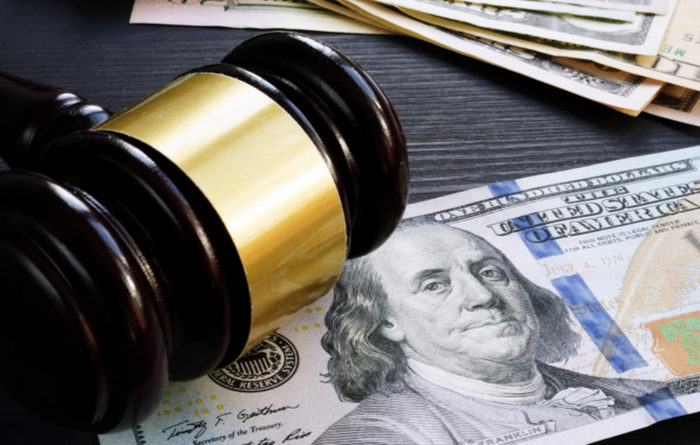What is Considered Excessive Bail?

Excessive bail occurs when the amount set by a court is more than needed to guarantee that the defendant attends all future scheduled court appearances. The Eighth Amendment of the United States Constitution protects citizens against excessive bail. Any bail set higher than necessary violates this amendment and should not be enforced by law enforcement.
Excessive bail is a constitutionally protected right that helps to ensure the freedom of individuals accused of criminal activity. In the United States, those arrested and charged with a crime can be released from jail on bail. Bail is money or other security that must be paid for a defendant to be removed from prison pending trial or appeal.
History
The concept of excessive bail, or asking for an amount far higher than necessary, has been around since antiquity. In ancient Greece and Rome, bail was used to ensure that a defendant would appear in court for their trial. In England, the English Bill of Rights regulated that “excessive bail” should not be required. Over time, this right was incorporated into law in the United States as part of the Eighth Amendment.
Since then, many states have adopted laws specifying when it is appropriate to set bail amounts and how they must be determined. For example, some states allow judges to consider only certain factors when setting bail amounts, such as a defendant’s financial resources and ability to post bond.
Constitutional Implications of Excessive Bail
The 8th Amendment of the United States Constitution prohibits excessive bail from being imposed. The government is prohibited from setting a bail amount higher than what is reasonable for the defendant to pay. Excessive bail can have far-reaching implications, both legally and constitutionally.
From a legal perspective, excessive bail can create an undue burden on those unable to afford it. The power of wealth in such cases may lead some defendants to be released. In contrast, others remain incarcerated due to financial hardship. This has unfair implications for those with little or no money and runs counter to our nation’s ideals of justice and fairness for all individuals regardless of income level or economic status.
From a constitutional standpoint, excessive bail raises serious questions about due process and equal protection under the law.
Factors that Determine Bail Amount
When a court determines the bail amount for an individual, many factors need to be taken into consideration. These factors can affect the amount of money required for pre-trial release from jail.
The primary factor is the severity of the crime or alleged offense, which could range from misdemeanors to felonies. Courts also examine whether the accused is considered a flight risk and has another criminal history. Other considerations include their employment status and financial ability to post bond as well as personal ties within their community, like family members in good standing with law enforcement agencies.
In some cases, a judge may assign several conditions along with posting bail, such as travel restrictions or avoiding contact with witnesses to remain out of custody until trial.
Legal Challenges
The legal system is designed to protect the rights of individuals accused of a crime, particularly regarding excessive bail. As such, this has become a hotly contested issue in recent years. Many cases have been brought before the courts challenging what constitutes an excessive bail amount for a given offense.
The Supreme Court has found that setting a high bail amount may be unconstitutional if it is not based on a defendant’s risk level or ability to pay. This means that judges must consider whether the accused can reasonably post bond without suffering undue hardship; otherwise, they may be violating their constitutional rights. Additionally, prosecutors have begun pushing back against judges who set excessively high bails, citing prohibitively expensive bonds as unfair and unjustified in certain instances.
Public Opinion
Public opinion on excessive bail is a complex and varied topic. Citizens in different countries can be shaped by their understanding of the legal system and their personal experiences with it. Generally speaking, many individuals find that excessive bails are unfair and unjust because those who cannot pay the specified amount are often forced to remain incarcerated for prolonged periods. People tends to lean towards believing that bail should only be used when necessary. Additionally, when an individual poses an immediate threat or risk.
This is not the case with Wichita Bonding Company. Wichita Bonding Company has been providing trusted service to individuals and businesses in both the public and private sectors.
The team at Wichita Bonding Company stands out among competitors with their deep understanding of the bond industry and commitment to customer service excellence. Whether you’re looking for a contractor bond, license or permit bond, or any other type of surety bond solution, Wichita Bonding Company can help meet your unique needs. They offer competitive rates on all services backed by friendly staff who will guide you through the process from start to finish.




